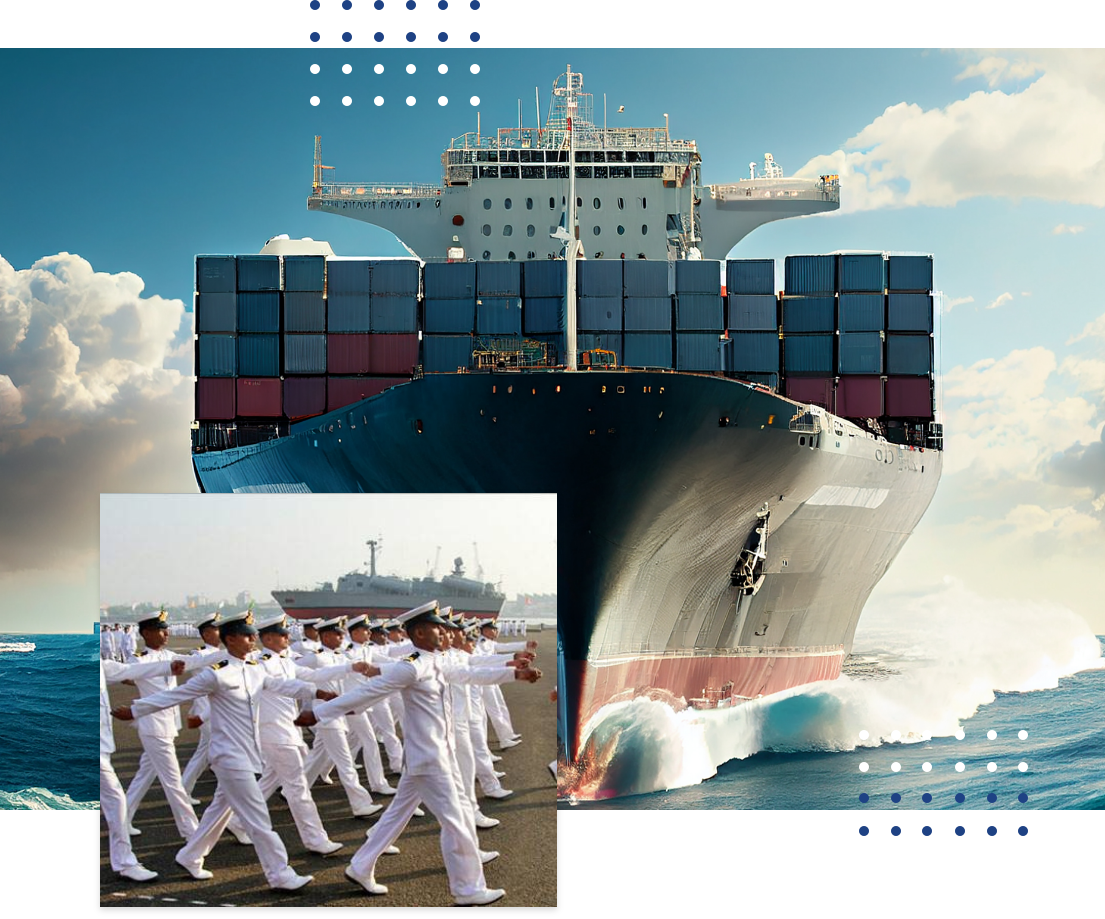About Rigel Institute of Maritime Studies
Rigel Institute of Maritime Studies, established in March 2020, enhances the skills of seafarers through specialized marine training. It aims to meet international standards and regulations for competent seafarers, offering state-of-the-art facilities and fostering a spirit of mutual learning in the rapidly evolving shipping industry. The institute contributes to the efficient transport sector, crucial for a country like India with significant maritime access.
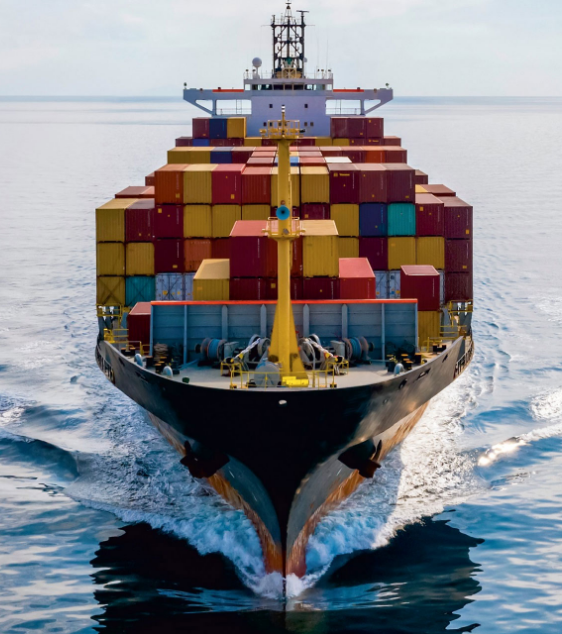
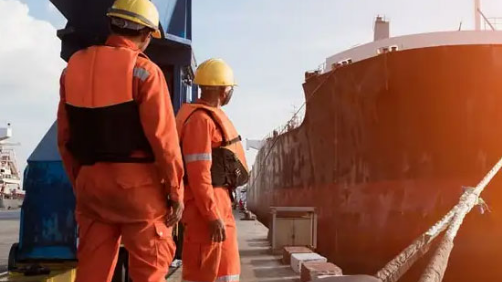
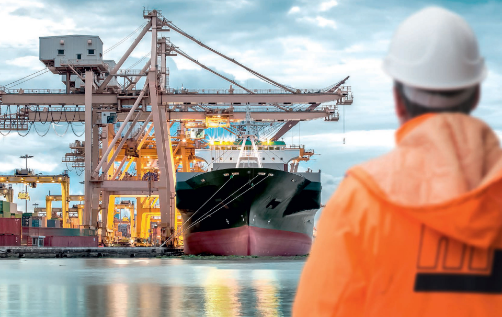
Courses
The Services we offer
.jpeg)
Safety Officer on Board
The ship safety officer operates based on thorough risk assessments and investigations, continually monitoring and
identifying potential hazards to proactively prevent incidents at sea. Their recommendations to the ship's master play a vital role in maintaining a safe shipboard environment.
The Safety Officer on Board online course is designed to delve deeper into the responsibilities and skills required of this pivotal role. It aligns with international guidelines set forth in the STCW A-II/2 & A-III/2 and the IMO Model Course 3.11(Marine Accident & Incident Investigation). This training equips individuals with the knowledge and expertise needed toexcel as ship safety officers.
Topics covered in the course include hazard identification, accident and incident investigation, risk assessment
methodologies, and the development and implementation of safety management systems. By completing this training, individuals are well-prepared to effectively fulfill the duties and responsibilities of a ship safety officer, contributing to the overall safety and security of maritime operations.
The role of a ship safety officer is of paramount importance in ensuring the well-being and security of both the vessel and its crew. This dedicated individual serves as the chief safety advisor on board, responsible for overseeing and
implementing all health and safety-related requirements.
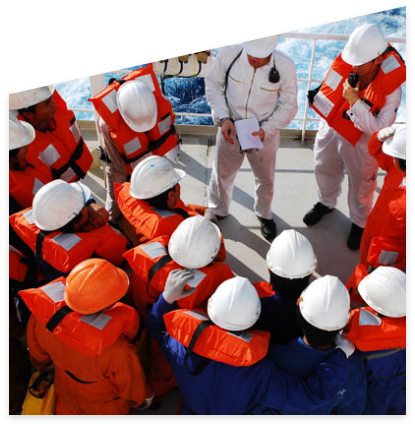
Advanced Training in Fire Fighting
SCOPE: To conduct Advance Training in Fire Fighting course which is in compliance with the requirements of Section A-VI/3 of the STCW code 95 as amended in 2010,
OBJECTIVES: This syllabus covers the requirements of the STCW convention. 1995 as amended, in 2010, chapter VI, section A-V1/3 and table A-VI/3. On meeting the minimum standard of- competence in advance firefighting, a trainee will be competent to take command, organize and train fire parties and control fire-fighting operation.
CODE & REGULATION: This course provides the training for candidates on Advance Training in Fire-fighting on board ship, in accordance with Section A-V1/3 of the STCW code 95 as amended in 2010.
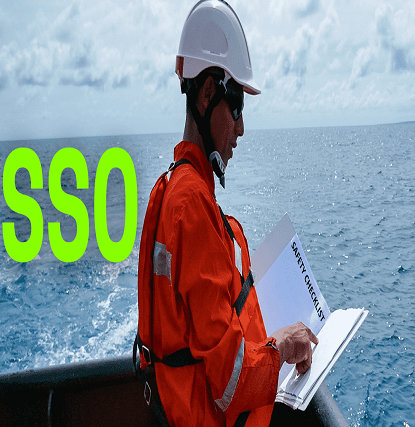
Ship Security Officer - SSO
One of the primary responsibilities of an SSO is to develop, implement, maintain, and supervise the Ship Security Plan (SSP). The course provides comprehensive training on how to create and manage these plans, ensuring that vessels are well-prepared to respond to security threats and incidents.
Furthermore, the course focuses on threat identification, vulnerability assessment, and the evaluation of security risks. SSOs learn how to recognize potential security threats, assess vulnerabilities in shipboard operations, and conduct risk assessments.
This knowledge is crucial for developing robust security measures and response protocols to protect the
ship, its crew, passengers, and cargo. Compliance with international standards is a core component of the training, aligning with the Mandatory Minimum Requirements for the Issue of Certificates of Proficiency for Ship Security Officers, as outlined in STCW A-VI/5 and the IMO Model Course 3.19. This ensures that individuals completing the course are well-prepared to meet the highest standards of maritime security and safety.
In conclusion, the STCW Ship Security Officer online course plays a pivotal role in fostering maritime security by training individuals to effectively manage Ship Security Plans and respond to security threats. This training is not only essential for regulatory compliance but also for safeguarding vessels and maritime operations in an increasingly complex security landscape.
The STCW Ship Security Officer online course is a critical training program designed to equip individuals with the
knowledge and skills necessary to assume the role of a Ship Security Officer (SSO) effectively. This course covers a wide range of topics essential for maintaining maritime security.

Food Safety and Hygiene for Galley Staff
The course is aligned with MLC 2006 regulation 3.2 of the ILO convention, which places a strong emphasis on the health and well-being of seafarers, including the safety of the food they consume while on board. It also complies with Hazard Analysis and Critical Control Points (HACCP) principles, ensuring that the food handling and preparation processes meetinternationally recognized food safety standards.
Food safety and hygiene are paramount in any food preparation setting, but they are especially critical in a maritime
context where a large crew and passengers rely on the galley staff for their meals. The course covers topics such as safe food handling, cross-contamination prevention, proper storage practices, and personal hygiene to minimize the risk of foodborne illnesses.
By completing this training, galley staff not only adhere to regulatory requirements but also play a vital role in safeguarding the health and well-being of everyone on board. Their commitment to maintaining the highest food safety and hygiene standards contributes significantly to the overall safety and comfort of maritime operations.
The Food Safety and Hygiene for Galley Staff online course is a crucial training program specifically tailored for food
handlers working in catering, particularly in the maritime industry. Its primary objective is to provide galley staff with a
foundational understanding of essential food safety and hygiene practices.
-
25+
Total Staff
-
10+
Total Courses
-
5+
Total Classrooms
-
2+
Total Offices
Join us
Error
Error
Error
